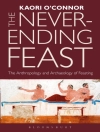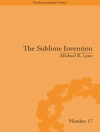Alone among Muslim countries, Morocco is known for its own national form of Islam, ‘Moroccan Islam.’ However, this pathbreaking study reveals that Moroccan Islam was actually invented in the early twentieth century by French ethnographers and colonial officers who were influenced by British colonial practices in India. Between 1900 and 1920, these researchers compiled a social inventory of Morocco that in turn led to the emergence of a new object of study, Moroccan Islam, and a new field, Moroccan studies. In the process, they resurrected the monarchy and reinvented Morocco as a modern polity.
This is an important contribution for scholars and readers interested in questions of orientalism and empire, colonialism and modernity, and the invention of traditions.
Mục lục
Acknowledgments
Map
Introduction: Inventing Moroccan Islam
PART ONE
ETHNOGRAPHIC MOROCCO
1 France and the Sociology of Islam, 1798–1890
2 The Algerian Origins of Moroccan Studies, 1890–1903
3 The Political Origins of the Moroccan Colonial Archive
4 When Paradigms Shift: Political and Discursive Contexts of the Moroccan Question
5 Tensions of Empire, 1900–1912
PART TWO
NATIVE POLICY MOROCCO
6 Social Research in the Technocolony, 1912–1925
7 Berber Policy: Tribe and State
8 Urban Policy: Fez and the Muslim City
PART THREE
GOVERNMENTAL MOROCCO
9 The Invention of Moroccan Islam
10 From the Ethnographic State to Moroccan Islam
Abbreviations
Notes
A Note on Sources
Bibliography
Index
Giới thiệu về tác giả
Edmund Burke III is Professor Emeritus of History at the University of California, Santa Cruz, and the author or editor of many works, including Struggle and Survival in the Modern Middle East (UC Press).












